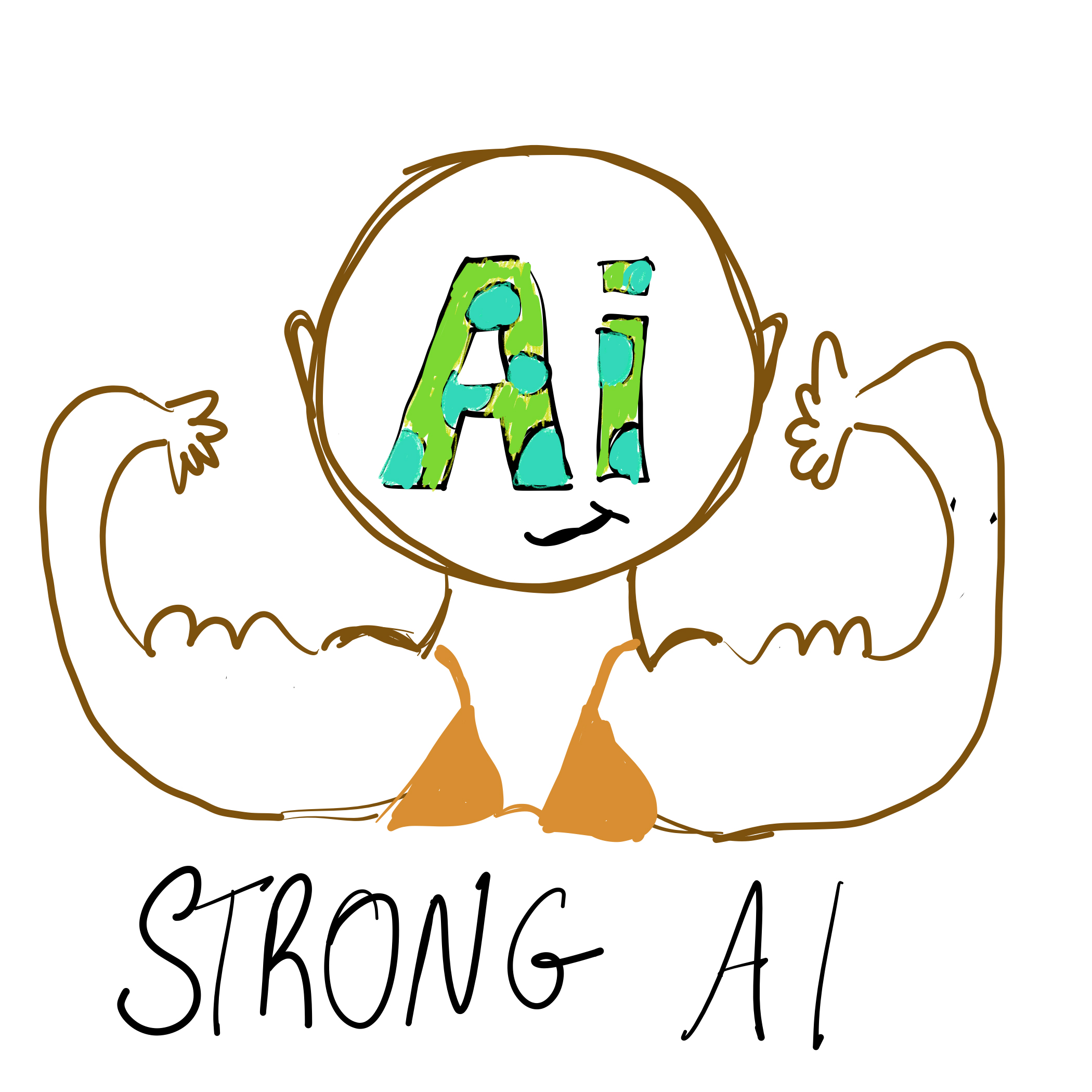Strong Artificial Intelligence

What is AI?
Artificial intelligence is the application of a variety of techniques to enable machines to mimic a type of human intelligence. AI is being used in an increasing number of applications. Alan Turing, a mathematician, developed the notion in the 1950s. Turing highlighted the topic of giving computers intelligence in his book Computing Machinery and Intelligence. He described the Turing Test, in which a participant interacts blindly with another human, followed by a machine trained to generate meaningful replies. If the subject is unable to identify the difference, the computer has passed the test and, according to the author, is really “intelligent”.
How does AI work?
Machines with artificial intelligence remember what they see. This memorizing practice enables them to solve problems and respond appropriately in a given circumstance. This process of learning is carried out with the assistance of databases and algorithms. This sophisticated job assists the computer in determining the importance of an issue, sorting through potential solutions and comparable prior circumstances in order to behave appropriately.
Strong and weak AI
That being stated, there are two types of AI: weak AI and strong AI. Personal assistants, such as Google Assistant, Siri, and Alexa, are considered weak AI algorithms since they work within a narrow pre-defined range of functions. Then there are machines with their own minds, capable of making independent judgments without human intervention. These programs have the potential to be classified as strong artificial intelligence.
- Weak AI, often known as narrow AI, is artificial intelligence with restricted capabilities. Weak AI refers to the application of advanced algorithms to certain problem-solving or reasoning activities that do not span the entire spectrum of human cognitive capacities.
- Strong AI is a speculative kind of machine intelligence that holds that computers can truly acquire human consciousness on par with humans. Strong AI refers to computers that have their own mind and can think and complete complicated tasks without the need for human intervention. Strong AI features complicated algorithms that assist computers in acting in many scenarios, and strong AI-powered devices can make independent judgments without the need for human intervention. Strong AI-powered machines can carry out complicated jobs autonomously, much like humans. It essentially asserts that a computer machine with the necessary functional structure has a mind capable of seeing, thinking, and intending in the same way that a human mind does. This is the kind of artificial intelligence that we see in science fiction films.
Weak AI in daily life and machine learning
Examples of AI in our daily lives include the usage of machine learning, which is a data analysis approach that automates the creation of analytical models. It is a subfield of artificial intelligence that is predicated on the premise that systems can learn from data, spot patterns, and make choices with little or no human interaction.
Apple’s Siri, Amazon’s Alexa, and Microsoft’s Cortana are digital assistants that assist users with a variety of activities ranging from updating their calendars and surfing the web to transmitting signals to other apps. Because these applications learn from every single user contact, AI is a crucial aspect of how they operate. This enables them to identify speech patterns more accurately and provide consumers results that are suited to their tastes.
Aside from that, virtual filters on Snapchat and FaceID unlock on iPhones are two additional instances of AI applications available now. The former use face detection technology to identify any face, whilst the latter employs face recognition.
AI-powered smart recommendation systems are used by media streaming companies such as Netflix, YouTube, and Spotify. First, the system gathers information about users’ interests and behavior through different online activities. The data is then analyzed by machine learning and deep learning algorithms to forecast preferences.
Data is KEY
In any case, data is critical to AI, whether it is strong or weak. Without data inputs, the algorithms have nothing to learn from, which is why huge datasets are critical. However, not every data has the same value.
Is strong AI possible?
It’s worth noting that there are two main definitions of “Strong AI.” The first is an artificial intelligence that has a consciousness in the same way that we do and the second one, an artificial intelligence capable of doing any task on par with or better than humans. The first point of view was presented by philosopher John Searle, who subsequently challenged it with his Chinese Room thought experiment.
The argument’s conclusion is that programming a digital computer can make it appear to comprehend language but cannot achieve true comprehension. As a result, the “Turing Test” is insufficient. The thought experiment, according to Searle, emphasizes the fact that computers only utilize syntactic rules to modify symbol strings and have no concept of meaning or semantics. The argument’s wider conclusion is that the assumption that human minds are computer-like computational or information processing systems is debunked.
I believe it is safe to state that the first sort of Strong AI is the most contentious. I also feel it’s fair to argue that Strong AI in this context is more of a philosophical than a scientific topic.
Now that we’ve covered the basics, are any of these sorts of Strong AI feasible? I’ll express my thoughts here (ALERT, Margaux is giving her opinion). I think that powerful AI is achievable, but we lack the resources to build it. However, it will be developed in the next decades, and Deep Mind, a Google-owned business, is on its path to general AI. However, in order to fully develop it, we must move beyond the philosophical perspective and concentrate on the scientific one. Philosophy can be included in the initiating phase to examine ethics, but it should not be included in the development section because the fundamental question is whether or not it is possible not if it is fair, or a beneficial development.
Sources:
Bello, S. (2021). 8 Examples of Artificial Intelligence in our Everyday Lives. Edgy. https://edgy.app/examples-of-artificial-intelligence
Braga, A. (2017). The Emperor of Strong AI Has No Clothes: Limits to Artificial Intelligence. https://doi.org/10.3390/info8040156
Cole, D. The Chinese Room Argument. (2020). The Stanford Encyclopedia of Philosophy. https://plato.stanford.edu/archives/win2020/entries/chinese-room/
Dikson, B. (2021). DeepMind says reinforcement learning is ‘enough’ to reach general AI. The Machine. https://venturebeat.com/2021/06/09/deepmind-says-reinforcement-learning-is-enough-to-reach-general-ai/
Wu, F. (2017). Challenges and opportunities: from big data to knowledge in AI 2.0. Frontiers of Information Technology & Electronic Engineering. https://doi.org/10.1631/FITEE.1601883
